Dubai boasts a highly developed transportation infrastructure, designed to support its bustling economy and rapidly growing population. Among its network of well-maintained roads, metro lines, buses, and airports, the Salik toll collection system stands out as a pivotal component aimed at regulating traffic flow. Introduced in 2007, Salik utilizes Radio Frequency Identification (RFID) technology to automatically deduct tolls from registered vehicles as they pass through toll gates, facilitating a smoother traffic movement across the city’s major highways without any physical toll booths, thereby reducing congestion and improving commute times.
Acquiring and Setting Up a Salik Tag
- Purchase: Drivers can buy a Salik tag online, at petrol stations, or from select retail outlets across Dubai.
- Registration: After purchasing, the tag must be registered to the vehicle’s license plate number via the Salik website or mobile app.
- Activation: Once linked to a pre-paid account and loaded with funds, the tag is activated and ready for use.
Locations of Toll Gates
- Salik toll gates are strategically placed at major points around Dubai to optimize traffic flow. Key locations include the Al Garhoud Bridge, Al Maktoum Bridge, Sheikh Zayed Road, and Sheikh Mohammed bin Zayed Road, among others.
Financial Aspects
The financial aspects of Salik involve initial setup costs, ongoing toll charges, and potential fines for non-compliance. Here’s a concise overview:
Cost of Salik Tags and Toll Charges
- Salik Tags: A Salik tag costs 100 AED, which includes a 50 AED balance pre-loaded onto the tag.
- Toll Charges: Each passage through a Salik toll gate incurs a charge of 4 AED.
Payment Methods and Account Management
- Payment: Users can recharge their Salik accounts online, through the Salik app, or at selected retail outlets. Payments can be made via credit/debit cards, direct bank transfers, or cash at recharge outlets.
- Account Management: Users can manage their accounts through the Salik website or mobile app, where they can view balances, top-up funds, add or remove vehicles, and review transaction histories.
Fines for Violations and Dispute Resolution
- Fines: If a vehicle passes through a toll gate without sufficient funds in its Salik account, the driver is fined 50 AED if the account is not recharged within five days after the toll due date.
- Dispute Resolution: Disputes over toll deductions or fines can be addressed by contacting Salik Customer Service or lodging a complaint through the Salik website. The system allows for review and rectification in cases of erroneous charges or other discrepancies.
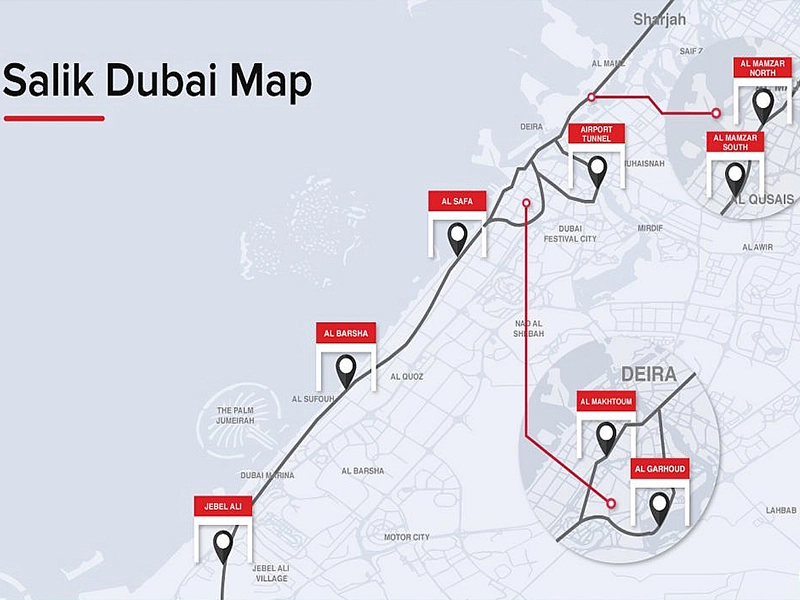
History of Salik
Salik was launched by the Dubai Roads and Transport Authority in July 2007 with the initial purpose of reducing traffic congestion along Dubai’s main arterial routes. Starting with just two toll gates, the system was Dubai’s first move towards electronic toll collection. Over the years, Salik has evolved significantly, expanding to include eight toll gates and integrating advanced technology for more efficient operations. This expansion aims to uniformly distribute traffic throughout the city and fund further transportation improvements, reflecting Dubai’s adaptive approach to urban mobility and infrastructure development.
Impact on Traffic Management
Effectiveness in Reducing Congestion
Statistical Data on Traffic Flow
Comparison with Other Global Toll Systems
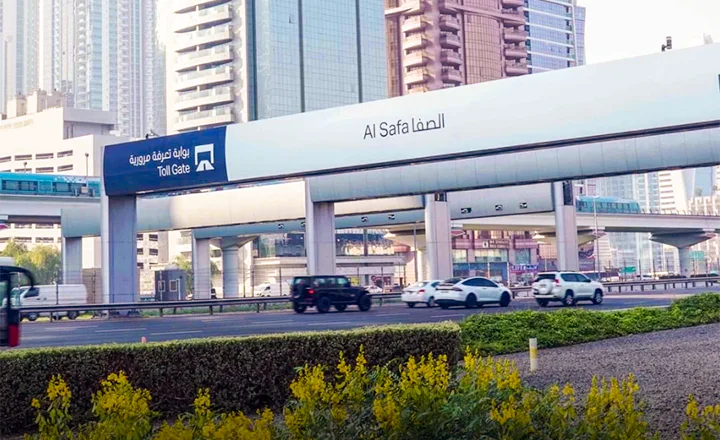
Public and Economic Impact
Future Developments
Looking ahead, Dubai plans to continue refining and expanding the Salik toll system to accommodate the city’s growing transportation needs and its vision for a more integrated and efficient mobility network. Here are some of the anticipated developments:
Planned Expansions or Modifications to Salik
- The Dubai Roads and Transport Authority (RTA) has plans to install additional toll gates on other major roads as the city expands. These expansions aim to further optimize traffic flow and reduce congestion in newly developed areas.
- Technological upgrades are also expected, which may include more sophisticated tolling technologies that could vary charges based on real-time traffic conditions or vehicle emissions, enhancing the system’s ability to manage traffic dynamically.
- Salik is set to be more closely integrated with Dubai’s broader transportation strategy, which includes expanding public transit routes, enhancing pedestrian pathways, and promoting electric vehicle use through incentives. This integration aims to provide a cohesive and multi-modal transportation system that encourages residents to use alternative forms of transport, reducing reliance on private vehicles.
- The system will also align with smart city initiatives, such as real-time traffic management and predictive analytics, to improve overall traffic efficiency and environmental sustainability.
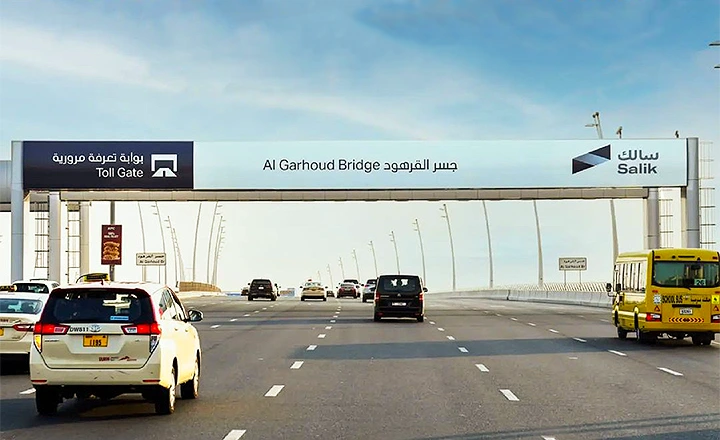
How does the Salik system in Dubai work? The system’s operation
System Operation and Technology
- RFID Technology: Each vehicle passing through a Salik toll gate needs to have a Salik tag affixed to the windshield. This tag is equipped with an RFID chip that communicates with sensors located at toll stations.
- Automated Toll Detection: As a vehicle approaches a toll gate, the RFID sensors automatically detect the presence of the Salik tag. The system then verifies if the tag is active and if there are sufficient funds in the linked prepaid account.
- Seamless Deductions: The toll amount is automatically deducted from the preloaded funds in the vehicle owner’s Salik account. This deduction occurs in real-time as the vehicle passes through the toll gate, ensuring that traffic continues to flow smoothly without the need for physical stopping or manual toll collection.
Costs and Financial Management
- Cost of Salik Tag: Purchasing a Salik tag involves a one-time fee of AED 100, which includes AED 50 worth of preloaded credit to start with.
- Toll Charges: The charge for passing through a Salik toll gate is AED 4 per passage. Importantly, the system is designed to charge the vehicle only once if it passes through the same toll gate multiple times within an hour, which helps avoid excessive charges during slow-moving traffic conditions.
- Account Management: Vehicle owners are required to manage their Salik account online or through the Salik mobile app. They can top up their balance, monitor transaction history, and manage vehicle details associated with their account.
Integration and Data Management
- Traffic Management Integration: Salik is integrated with Dubai’s traffic management system, allowing authorities to monitor traffic patterns and congestion levels in real time. This data helps in making informed decisions about traffic routing and management strategies.
- Future Technological Enhancements: Potential future enhancements to the Salik system could include dynamic pricing models, where toll rates might vary based on current traffic conditions, time of day, or environmental factors such as air quality.
Last Word
FAQs
A Salik tag is a small RFID sticker that you affix to your vehicle’s windshield. It communicates with sensors at toll gates, automatically deducting the toll amount from your pre-paid Salik account as you drive through without stopping.
A Salik tag costs AED 100, which includes AED 50 of pre-loaded credit.
You can purchase a Salik tag online, at selected petrol stations, Dubai Roads and Transport Authority (RTA) customer service centres, and some supermarkets.
You can recharge your Salik account via the Salik website, mobile app, or at retail outlets where Salik cards are sold. You can use credit cards, direct bank transfers, or cash for top-ups.
The toll charge for passing through a Salik gate is AED 4 per passage.
Salik tolls are charged 24/7 throughout the year. There are no off-peak hours or days when tolls are not applied.
If your Salik account does not have enough funds, you will receive a notice to top up your account. Failure to recharge within five days will result in a fine of AED 50.
No, each Salik tag is registered to a specific vehicle based on its license plate number. You need separate tags for each vehicle.
Certain vehicles such as emergency vehicles, public buses, and school buses are exempt from Salik charges. Additionally, motorcycles are also exempt.
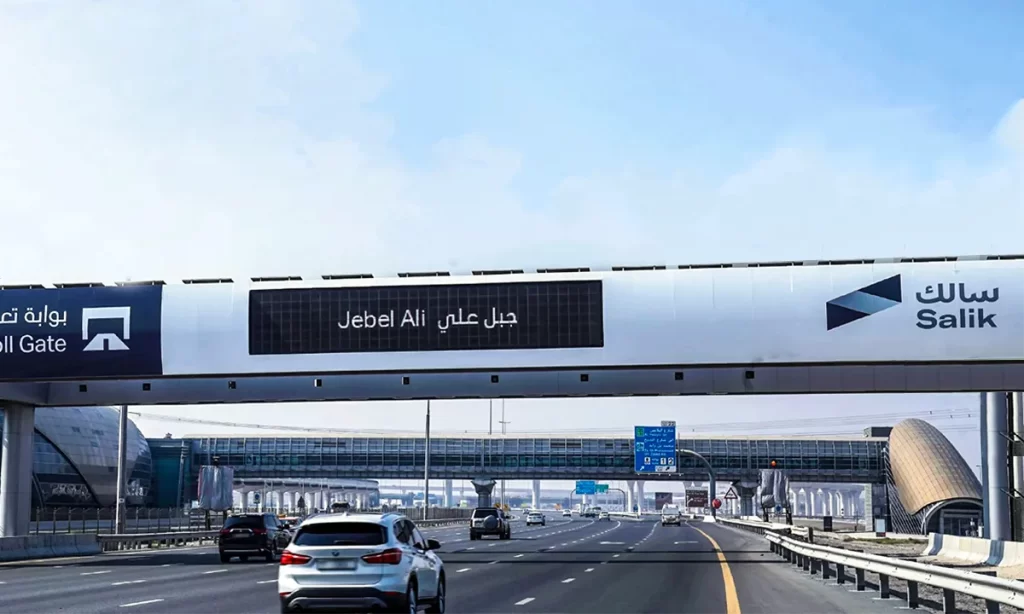

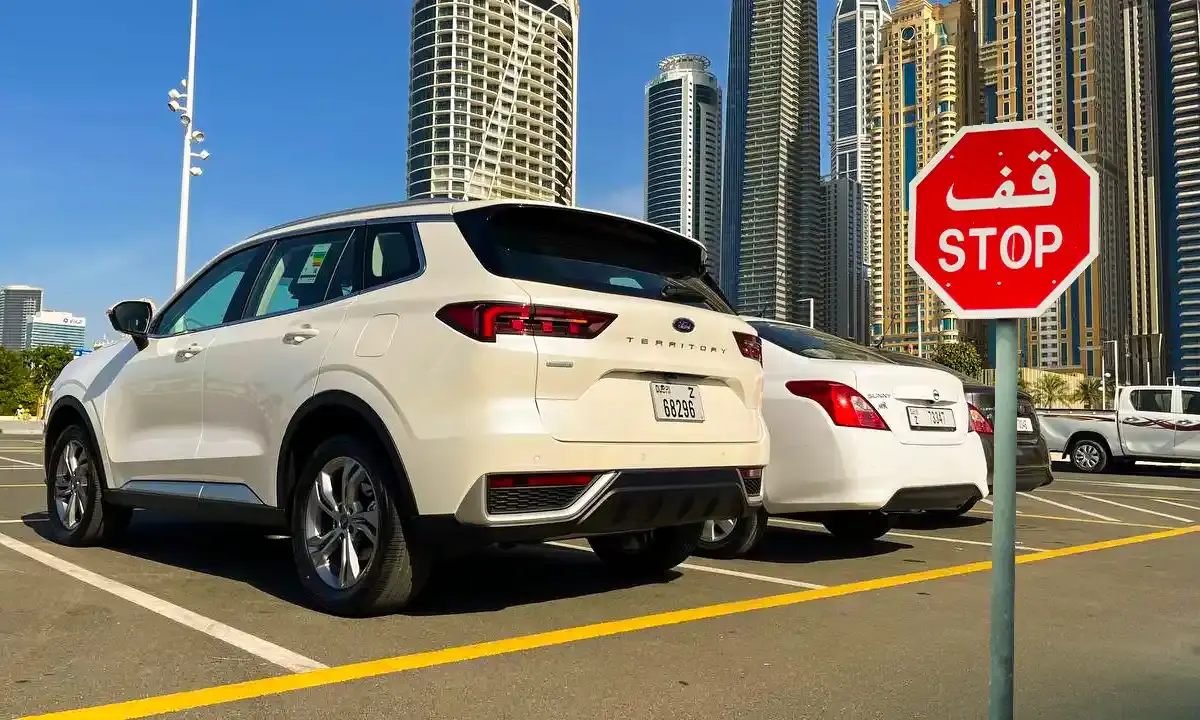
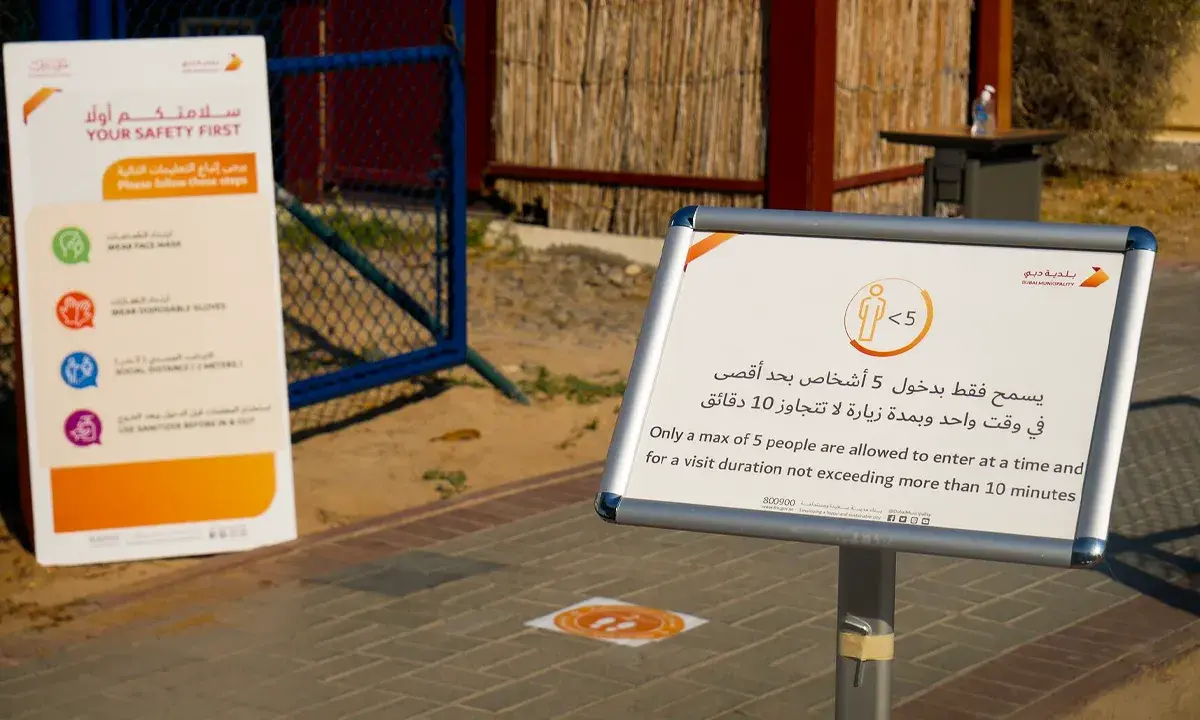
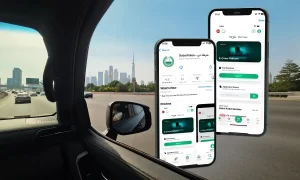

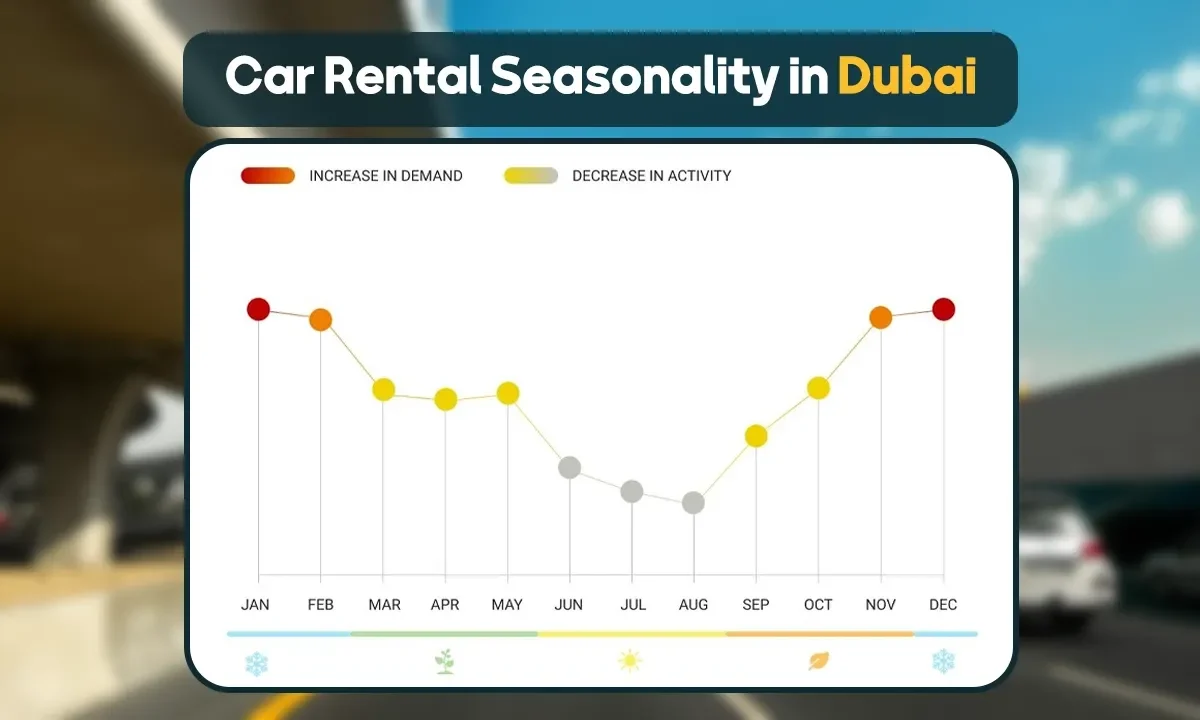









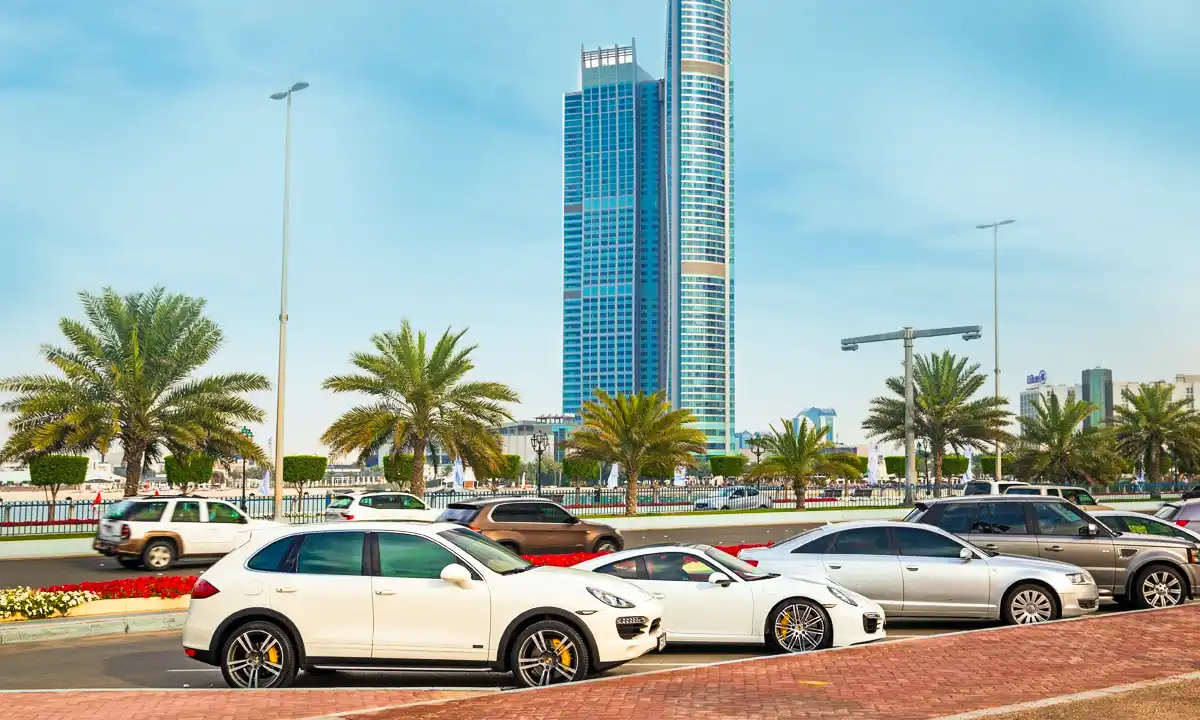








Thanks for the information. Are the prices you mentioned updated?
Yes dear, this is the latest update 2024.